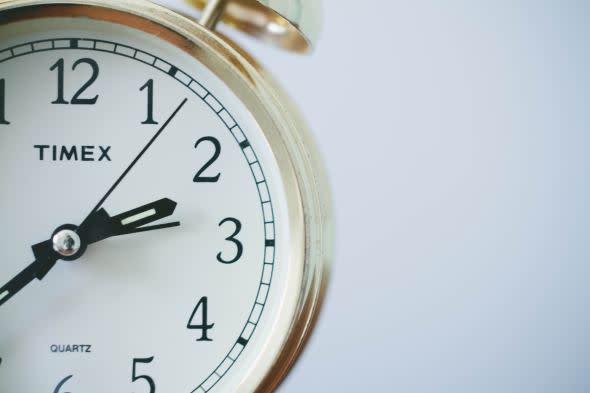Some US states, European countries want to stick to Daylight Saving Time, stop 'falling back'
Though much of the United States is accustomed to "falling back" and "springing forward" each year, some states hope to do away with the biannual practice of adjusting the clocks by one hour.
In Florida, the Sunshine Protection Act that went into effect in July 2018 would allow the state to remain in Daylight Saving Time (DST) year-round.
Although Florida Gov. Rick Scott signed the act into law, Congress has the final say on whether it will take effect.
If the change does happen, Florida would be the only state on the Atlantic coast that would remain an hour ahead of the rest of the Eastern Time Zone during winter, according to the Orlando Sentinel.

However, the act has yet to receive the required congressional approval, so Florida's clocks will fall back on Sunday, Nov. 4, along with most of the rest of the U.S. Arizona and Hawaii do not observe DST.
In California, a "yes" vote for Proposition 7 would mean a permanent change to DST. If passed, it would still require a two-thirds vote in the state legislature and federal government approval, according to KTLA 5 News.
Some New England states, including Maine, New Hampshire, Massachusetts and Rhode Island, have also considered the idea of keeping their clocks on the same time throughout the year.
Winter sunsets occur quite early in this region of the U.S. For example, the sun starts to disappear below the horizon in Maine before 4 p.m. between Thanksgiving and Christmas, which is an hour earlier than sunset in Detroit during the same period, the New York Times reported.
In November 2017, a special commission in Massachusetts voted to endorse a report which stated that a year-round shift to DST "could have positive benefits" but added that such a change should be regional, according to the New York Times.
Earlier that year in May, a bill cleared the Maine Senate that allowed voters to determine in a statewide referendum whether the state moves an hour ahead to Atlantic Standard Time, which is the equivalent of staying on DST all year long.
The bill stated that the vote would only happen if neighboring New Hampshire and Massachusetts were also on board with the change.
Across the Atlantic Ocean, a recent public survey revealed that 80 percent of European citizens would prefer to do away with changing the clocks twice annually, and the European Commission has recommended that nations of the European Union remain on DST for the entire year.
The change won't go into effect until all member nations and the European Parliament approve new legislation, Travel + Leisure reported.
Daylight Saving Time drawbacks
"It appears that the primary reason some voters, activists and legislators seek to get rid of Daylight Saving Time is that it is inconvenient and annoying, and there has never been conclusive evidence that it is worth the trouble," said Mises Institute Communications Director Ryan McMaken, an expert in state policies and their economic impacts.
"Indeed, studies over the past decade in places as diverse as Australia and Indiana have shown that DST doesn't lead to less energy consumption - as DST's advocates have long claimed," McMaken told AccuWeather.
On the other hand, McMaken added, some studies have shown that DST leads to significant health problems, including higher incidences of strokes, as well as issues with fatigue and a heightened risk of car accidents.
"These problems are related to the fatigue and lack of alertness that results from the time changes involved in switching back and forth from DST," McMaken said.
The time changes impact our circadian rhythms of being asleep and awake, but they can also affect the rhythmic pattern of our blood pressure, according to Robert Soler, former NASA scientist and founder of BIOS Lighting.
"When we wake up at a time too early, it puts a lot of strain on our heart. As we ‘spring forward,' we see an uptick of heart attacks," Soler told AccuWeather.
McMaken noted that much of the debate surrounds the issues with changing the clocks twice per year and not the problems of DST itself.
"Were each jurisdiction to choose a time and just stick with it, we'd likely not hear anyone mention DST ever again; it's the switching that causes most of the problems," McMaken said.
Choosing a specific time for each populated area, as is done with time zones, has always been a largely human invention somewhat designed to match up the time on the clock with the natural human patterns that form around sunshine or lack thereof, according to McMaken.
"Adopting DST full time would likely accomplish the same thing as totally getting rid of it - avoiding the problems of the time changes that have never been shown to have any substantial benefits," he said.
